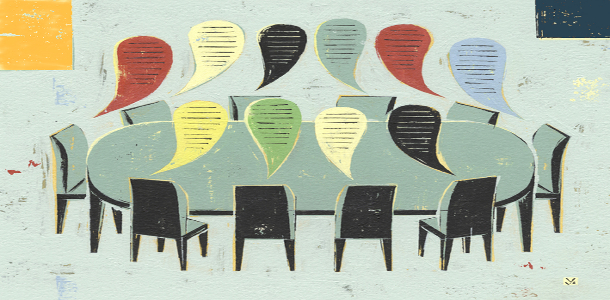




Thermostat wars
A common complaint in the workplace, aside from the usual bickering and office gossip, is about the temperature. You’re cold, so you bump the heat up slightly. Five minutes later, someone turns the heat down. Round one in the thermostat wars . . . If you complain about being cold, and you are a woman and not overweight, invariably you will hear “You need to eat. Put some meat on those bones and then you won’t be cold.” (Not sure what people say to overweight women or men who complain of being cold.) Statements like this are not particularly helpful, and they may...

If at first you don’t succeed . . ...
I can see my piano in the other room. My metronome, my light, my music, everything I need to practice. What am I waiting for? Like most adult piano students, I took lessons as a kid. But it was tough and I quit. I’ve always regretted that decision, especially when I hear Beethoven’s Sonata Pathétique, Vivaldi’s Winter, or Schumann’s Of Foreign Lands and People. And then there’s Chopin. (If I stick with piano, I’m at least 10 years from playing anything by Chopin.) This music inspires me to put in the time for a weekly 45-minute lesson and 30 minutes of...

I’m in the club . . . now what ?
This week something monumental happened. My request to join the LinkedIn group “Word Nerds” was accepted. (And there was much rejoicing!) I am now part of a group of like-minded people who share my appreciation for the power and subtlety of words Unfortunately — now that I’m in the club — I’m a little disappointed. They let me in, but how did they verify that I was worthy of membership? No one called to ask if I knew the difference between comprise and compose. No email was sent asking me to define a back formation. Didn’t a secret membership committee meet?...

A hyphenation headache
In my last post, I wrote about the em dash. This gentleman-like punctuation mark is used to indicate a pronounced interruption or break in thought. Now, on to the most exasperating and tiresome punctuation mark of all — the hyphen. In general, we use hyphens to avoid ambiguity. Otherwise, how would we be able to tell the difference between a “man-eating shark” and a “man eating shark”? There’s also a big difference between a pickled herring merchant and a pickled-herring merchant. (And we don’t want to go around casting aspersions on herring merchants, as...

Ad ode to the em dash
In Eats Shoots & Leaves: the Zero Tolerance Approach to Punctuation, plucky Lynne Truss describes punctuation as “a courtesy designed to help readers to understand a story without stumbling.” With this in mind, I introduce the most chivalrous punctuation mark of all. Ladies and gentlemen — the Mr. Darcy of punctuation marks — the em dash. Em dashes are used to indicate a pronounced interruption or break in thought. They should be used sparingly, and only when another punctuation mark (such as a comma or colon) will not suffice. While some do not afford the em...













